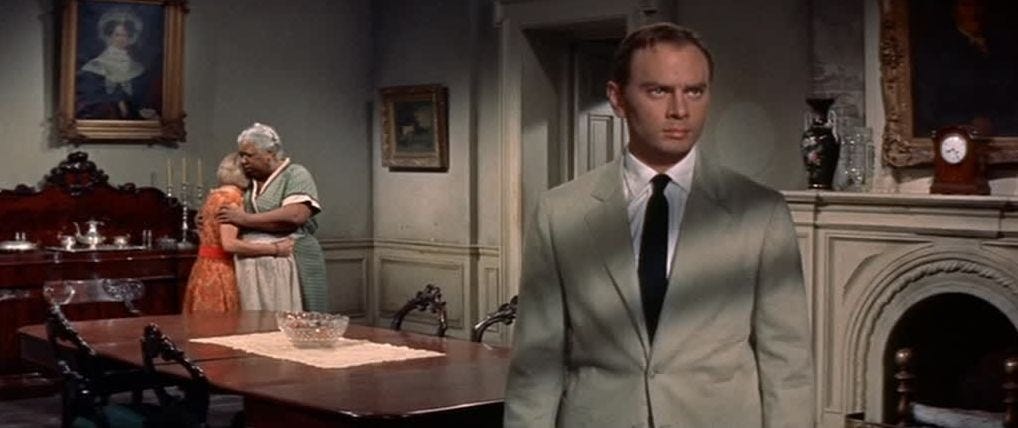Hello, readers.
The good people over at Lit Hub are in the middle of a March Madness-style bracket where they are putting famous villains from literature head-to-head to see who is the ultimate bad guy.
It’s a good idea—one that even I had in 2021 and tried to float over to the editors at Lit Hub hoping to get them to help promote and share on Instagram. They ignored me and I never once shared or reposted. As a result, I began my villain arc!
Just kidding. Lady Macbeth won our competition, by the way. Here’s the screenshot I posted way back then after her almost impossible win.
Now Lit Hub is running their own, almost identical bracket over on their website. But hey, it’s cool. I’m not salty. It’s all fair in love and pointless interactive content.
To be clear, I don’t believe they stole my idea or even were inspired by my own competition. It’s not like they saw it four years ago, have been waiting all this time, and are now strategically launching it.
Literary brackets are totally a thing. Just visit any bookstore or local library and you will see a similar type of promotion. It’s cheap, low-risk, easy fun if done correctly.
And Lit Hub is doing it right. Not only do they have a cool font and awesome pictures, but they also have a very nifty voting form. You can view and vote here.
To help promote the competition, different members of the Lit Hub staff are writing about their favorite villains from the initial group of 64. I just finished reading Drew Broussard’s excellent piece on Stephen King’s Randall Flagg. You can read that one here.
The other thing that I enjoy immensely about their bracket is how they’ve created the four regions: Authority Figures, Manipulative Bastards, Monsters and Boogeymen, and Anti-Villains. You can tell the people who created this thing are having a lot of fun.
However, when I first scoured the bracket, I was looking for my favorite literary villain, none other than Jason Compson from The Sound and the Fury. He had to be a top seed in Manipulative Bastards, no? Could possibly even be a low seed in the Monsters and Boogeymen region?
Alas, Jason did not make the list at all. Oh, the villainy!
Now of course, any bracket will have to leave a few good bids out. During the NCAA tournament, the term “on the bubble” is usually used for a team who might make the cut if the selectors view the team’s entire body of work and ignore the first impulse they might have for not selecting the team outright.
Alas, there will always be tough decisions, and always be teams who do not make it. Bracketology is a cruel, dark art and part of the fun of it all it bitching and moaning when you think your team got snubbed. ESPN has entire week long programming where their talking heads fill the 24-hour news cycle complaining about who they think should and should not be there once the bracket goes live.
But c’mon, I can’t let this one go. How did Jason not make the list?
I can’t argue with Iago being the 1-seed in the Manipulative Bastards category, nor can I debate Humbert Humbert at #2, or Hannibal Lector at #3.
But Tom Ripley at the 4-seed? Give me a break. Without the Matt Damon movie, nobody would even know who that character is. I bet you can’t even name the author of The Talented Mr. Ripley, can you?
The rest of the region is a little bit of a mess, too. I can easily debate that Jason Compson is way more of a Manipulative Bastard than Cathy Ames (whom I love) or Deke O’Malley (who?).
And if you’re going to say Annie Wilkes is a monster (currently still alive as the 11 seed, somehow beating out Anton Chigurh in the Monsters and Boogeymen bracket) then Jason Compson can also be considered a monster. I would say he negatively affects and ruins way more lives than little Annie Wilkes from Misery.
But I’m not here to squabble about this travesty of justice. If you’ve read The Sound and the Fury then you know what I am talking about and I don’t have to prove shit to the writers over at Lit Hub.
But in the spirit of writing about favorite villains, let me wax as to why I think Jason Compson deserves to be considered for the bracket and why he is my favorite villain and a perfect representation of today’s “toxic male.”
Jason Compson is the absolute definition of a monomaniac—he is obsessed and preoccupied with himself in the most unhealthiest of ways. His self-absorption results in him only seeing the world through a limited scope according to shallow, narrow-minded terms.
He is a narcissist, a hyper-macho misogynist of the worst kind and a forebear of the modern “meninist” movement.
What is a meninist? A person who claims to advocate for the issues and concerns faced by men, usually claiming discrimination or marginalization. Oh yeah, and they usually hate women.
Jason has zero empathy for the women in his life (or men for that matter, however Benjy is feminized once he is castrated) and he is downright cruel in his treatment of his niece, Miss Quentin. He essentially keeps her locked up in the house and torments her for entertainment.
Some might look to Stanley from 1947’s A Streetcar Named Desire as the ultimate literary brute, but Jason’s cruelty and brutality predates him by 18 years.
He is a perverse sadist to almost cartoonish effect. Since his life is so sad and pathetic he can only get off by exploding on others, even trapping the housemaid Dilsey, who at times is more of mother figure to him and his siblings, into some sort of altercation for entertainment’s sake. Some might look to Stanley from 1947’s A Streetcar Named Desire as the ultimate literary brute, but Jason’s cruelty and brutality predates him by 18 years.
Let’s just say this dude can hold a grudge. He blames his failures on his sister, Caddy, and so to get back at her, he compensates himself financially with the money that she sends to support her daughter.
Jason hates the women in his family so much that he is willing to end the family line by never marrying or having children of his own. He is unable to have a romantic relationship with a woman and the only physical relationship he has is with a prostitute that he keeps at bay in Memphis.
Was it a lack of motherly love that caused Jason to be so callous and cruel? Actually, Jason is the only child that Mrs. Caroline Compson actually seems to have affection for. And in return? He becomes her power of attorney and cheats her out of a large sum of money right from under her nose. He rejects the love his mother has for him and yet through his manipulation, she holds him in even higher regard than the rest of her children.
If you read the book you know that Caroline is no peach, but that is some cold, calculating shit right there.
So what was Faulkner trying to accomplish by including such, to quote Shakespeare’s equally “evil just for evil sake” character, Don John, a plain-dealing villain?
Faulkner was warning readers of “modern man,” a man who is only a shadow of a being. He is imperfectly formed and inadequate to deal with the problems of modern life, and therefore, can only revert to a base masculine form to survive.
The horror it seems, is living in a present world dominated by Jasons. It’s a world filled with ugly little evil men who are only out for themselves, hoarding power in a strongbox for no particular purpose other than control, selfishness, or power for power’s sake.
Jason’s father, Jason Compson III, is only in the novel in glimmers and glimpses, but he does imprint a cynicism that resonates throughout the book (and possibly throughout Jason Junior’s own life): “a man is merely the sum of his misfortunes.” If that is true, then Jason truly is a ruined man.
So is there hope? Well, at the end of Faulkner’s novel, he gives us a signal of redemption in the form of spring, ending his novel on Easter day. The message, then, is this: after absolute evil can come good; after ugliness can come renewal.
And that should give us some hope.







